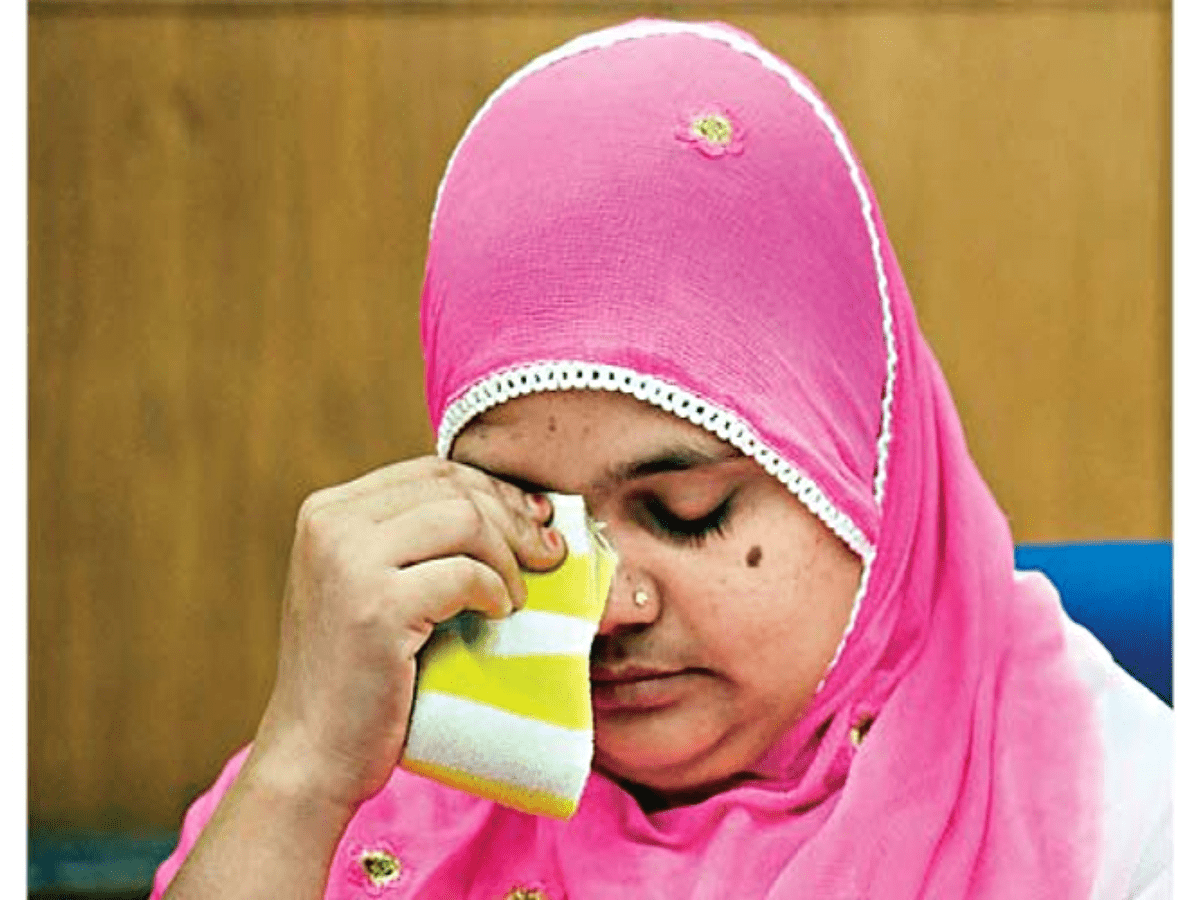
New Delhi: Supreme Court judge Justice Bela M Trivedi Wednesday recused herself from hearing a batch of pleas challenging the remission of sentence of 11 convicts in the Bilkis Bano case in which she was gang-raped and seven members of her family were killed during the 2002 Gujarat riots.
A bench of Justices Ajay Rastogi and Bela M Trivedi took up the pleas by CPI(M) leader Subhashini Ali, journalist Revati Laul, former vice-chancellor of the Lucknow University Roop Rekha Verma and Trinamool Congress (TMC) MP Mahua Moitra against the premature release of the convicts.
Advocate Rishi Malhotra, appearing for one of the convicts, insisted the petitioners have to prove their locus standi in the case.
Advocates Vrinda Grover and Aparna Bhat, representing the petitioners, opposed the contention, saying the stage of maintainability has long been crossed after the court issued notice on their plea.
Bhat said pleadings in the matter are over and the court may keep the pleas for February for the final hearing.
The bench agreed to the Bhat’s request and said it will list the petitions for February.
Advocate Shobha Gupta, the counsel for Bilkis, pointed out at this juncture that Justice Trivedi has recused herself from hearing the victim’s plea challenging remission of the sentence of the convicts and their premature release from jail.
Justice Rastogi, then had a brief conversation with Justice Trivedi and said, “Since my sister judge has already recused from hearing the victim’s plea, she would like to recuse from hearing this matter also.”
Justice Rastogi said now that the victim has approached this court challenging the remission, her plea will be taken up as the lead matter and the rest of the writ petitions would be tagged along when the bench sits in a different combination of judges.
“We will list all the matters on the next date and tag along all the petitions. All the pleadings should be complete by then,” the bench said.
Senior advocate Siddharth Luthra and Malhotra requested the bench that whatever rejoinder affidavits are being filed by the petitioners be served upon them. Justice Rastogi said everything should be shared among the parties and once the matter has been tagged, the court will start hearing the issue on merits.
On December 13 last year, Justice Trivedi had recused herself from hearing a writ petition filed by Bilkis Bano in which she challenged the remission of sentence of 11 convicts by the Gujarat government. Like the previous occasion, no reason was assigned for recusal.
In her writ petition against the grant of remission, which had led to the release of the convicts on August 15 last year, she said the state government passed a mechanical order completely ignoring the requirement of law as laid down by the Supreme Court.
On the same day, the top court had also dismissed a plea filed by Bilkis Bano seeking a review of its May 13 verdict by which it had said the state of Gujarat was the “appropriate government” competent to examine the application for premature release filed by a convict in the gang-rape and murder case.
“In our opinion, there appears no error apparent on the face of record, which may call for review of the judgment dated May 13, 2022 and as regards the judgments on which the reliance has been placed, none of the judgments are of any assistance to the review petitioner,” the top court had said in its order.
“In our opinion, no case for review is made out. The review petition is accordingly dismissed,” it had said, while also rejecting the application for listing the petition in the open court.
In its May 13 order, the apex court had asked the state government to consider the plea of a convict for premature release in terms of its policy of July 9, 1992, which was applicable on the date of conviction, and decide it within a period of two months.
Bilkis Bano was 21 years old and five-month pregnant when she was gang-raped while fleeing the riots that broke out after the Godhra train burning incident. Her three-year-old daughter was among the seven family members killed.
Investigation in the case was handed over to the CBI and the trial was transferred to a Maharashtra court by the Supreme Court.
A special CBI court in Mumbai had on January 21, 2008 sentenced the 11 convicts to life imprisonment. Their conviction was later upheld by the Bombay High Court and the Supreme Court.
The 11 men walked out of the Godhra sub-jail on August 15 last year after the Gujarat government allowed their release under its remission policy. They had completed more than 15 years in jail.



